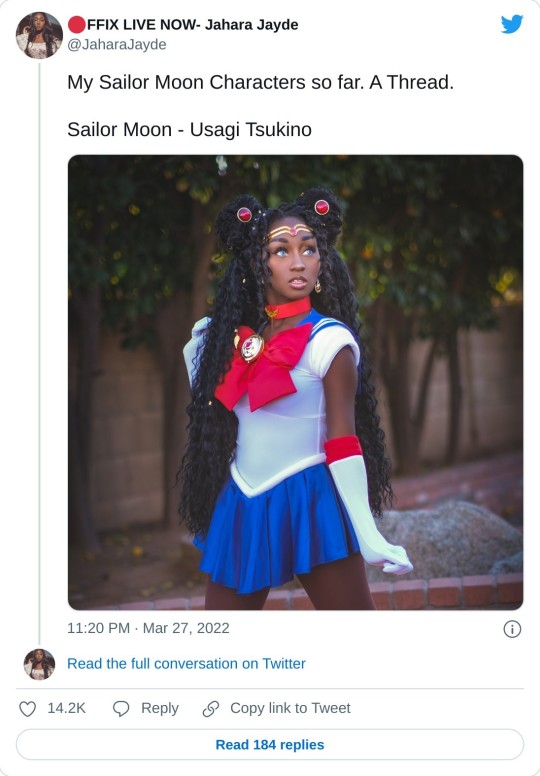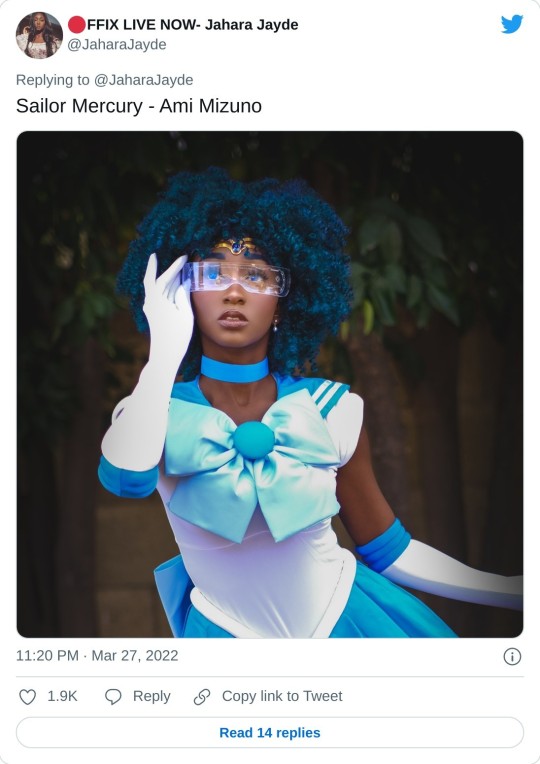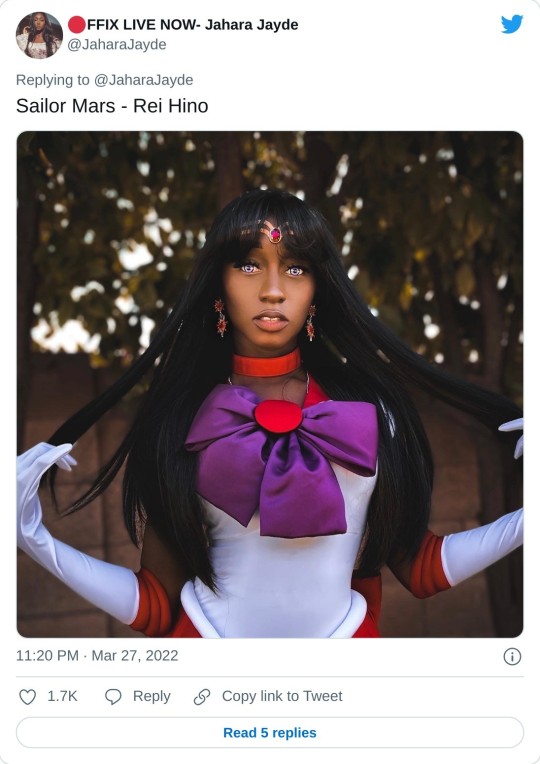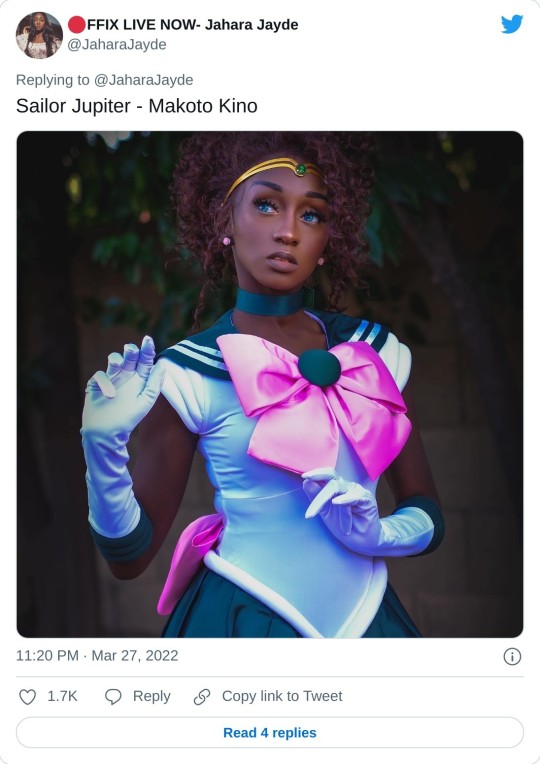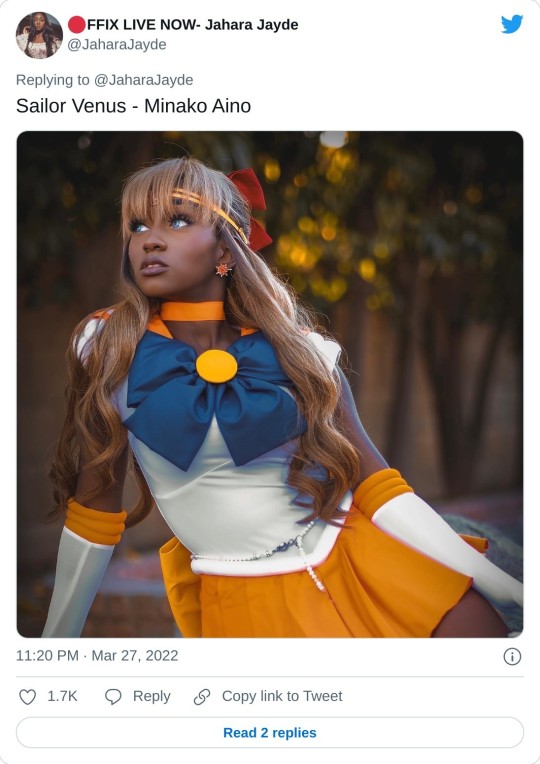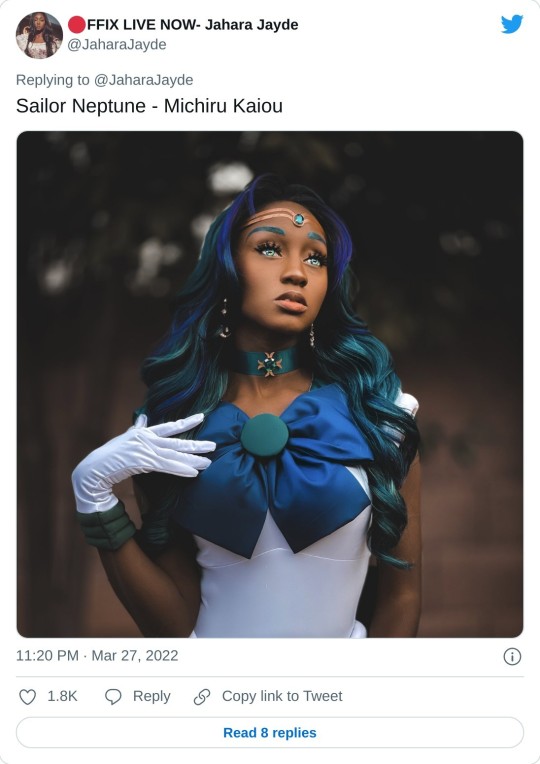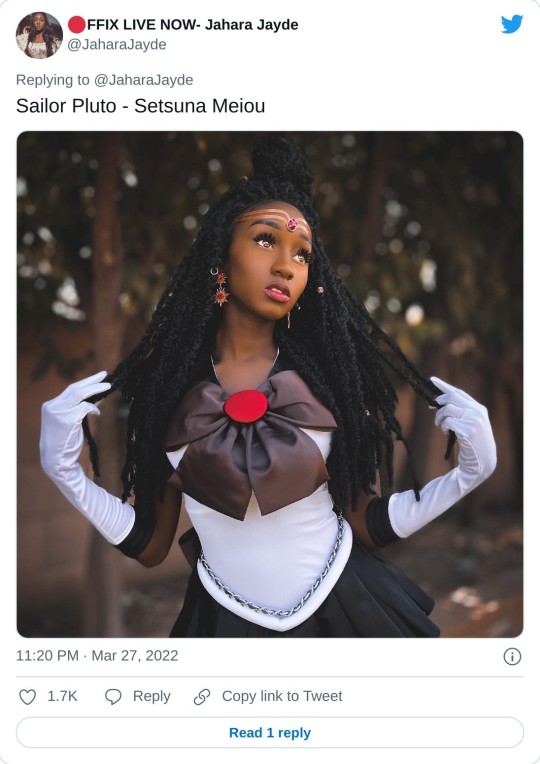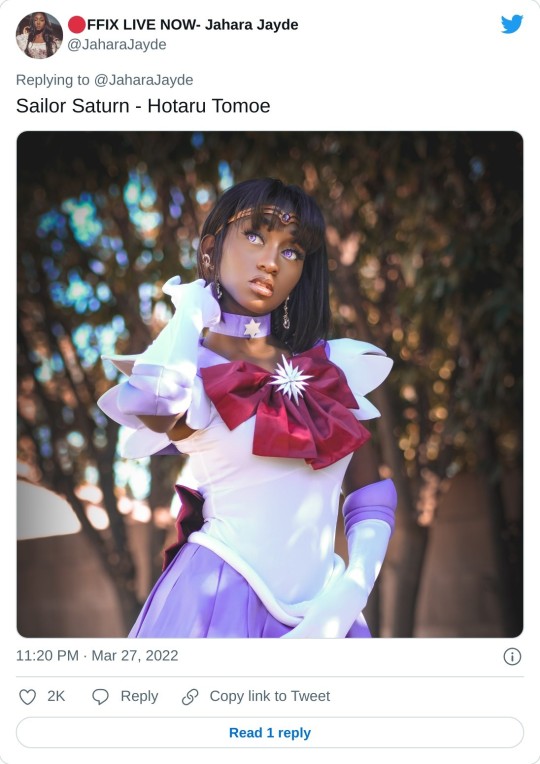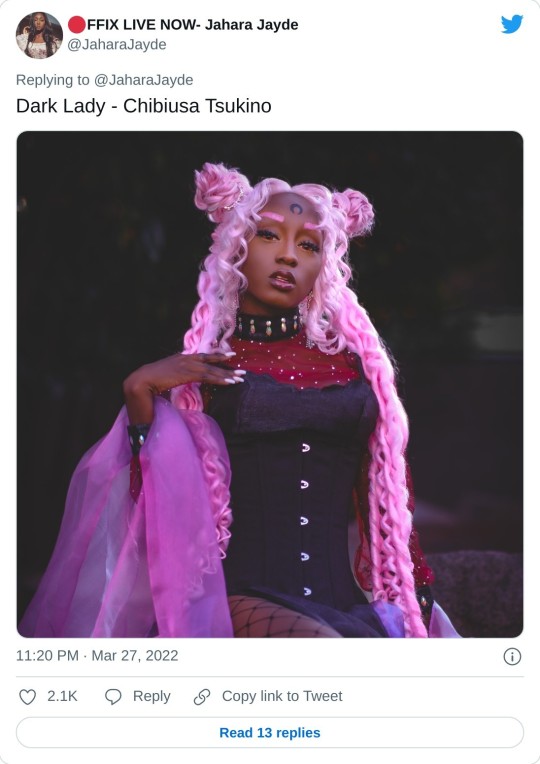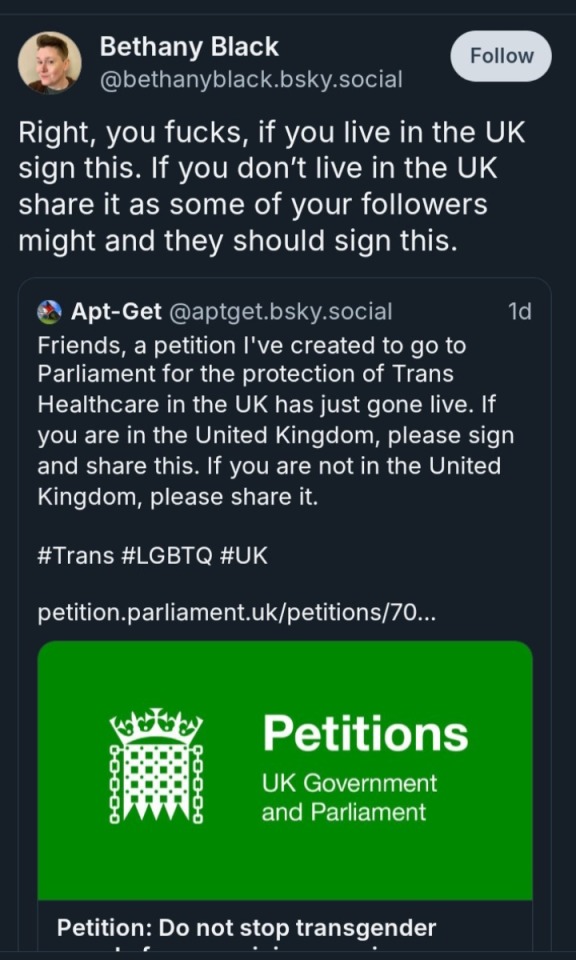Feminism, history, random facts, comics, cartoons, social justice, sporking and anything else that catches my attention. My religion teacher used to use "purple" as a word to represent anything that set a person apart, that they hated about themselves and wanted to hide. Then she'd smile and say not to hide or hate yourself for being different. I agree. Embrace your inner purple!
Don't wanna be here? Send us removal request.
Text
It's fine to not like Clone Wars, but many SW fans do and it's probably the biggest known touchpoint for what the war was like so I wanted to include it, especially since George Lucas has said that he only considers the first six movies and the first six seasons of Clone Wars when he thinks of Star Wars info. Just in case though, I included pure, pre Clone Wars EU for those of you who prefer that. Obviously I'm a big Clone Wars girlie (I wouldn't have gotten into Star Wars without it) but I do adore pre-Clone Wars Legends as well. Like I said, regardless of what you do or don't count as canon for your analysis the Separatists are dangerous to billions of civilians
Oh, WOW. So she failed at her one job AND apparently she'd be willing to have aforementioned billions or even trillions of people die so the Jedi could maintain HER view of moral purity by having no clones around. What a charming individual. Not having the clones wouldn't avert the Clone Wars. The Separatists are coming regardless. We saw that in Episode Two. What not having the clones around would do is A) Seriously hamper the Jedi's ability to help out because all 200 people in the Jedi strike team would've been killed on Geonosis, including most of the Order's heavy hitters. B) Give the Separatists more time to blitz through the Republic at the start because the Republic would need to cobble together an army AND the situation would need to be bad enough that the Jedi wouldn't fight being drafted. And she thinks she gets to tell anyone else what a fucking Jedi is and talk about protecting people?
Fanfic: Did you ever hear of the Tragedy of Etain Tur-Mukan?
Me: No. Enlighten me.
Fanfic: She was a Jedi who fell in love with and married a clone, but she died in Order 66.
Me: Awww! That sounds sweet! And tragic! I’d like to see that. Was her husband forced to kill her or something?
Wookieepedia: She was killed when she jumped between some clones and some teenage/kid Padawans.
Me: Oh, cool, so she died a hero?
Wookieepedia: She did it to defend the clones.
Me: To….defend the CLONES? In ORDER 66? The time when clones were committing mass genocide??? Against HER CULTURE?
Wookieepedia: That’d be the ones!
Me: ….Okay, so, nothing of value was lost with her dying, got it. Who wrote this???
Me: Oh. I see. Her tragedy was being written by Karen Traviss. Fair enough, fandom, fair enough.
77 notes
·
View notes
Text
Forget the order, she sat out BILLIONS of people dying. Even if you want to exclude the Clone Wars tv show, Legends had the Separatists bombing planets into molten lava (Ki Adi Mundi's whole family died that way), destroying planets, experimenting on civilians, and unleashing bio weapons - some targeted at clones and some targeted civilians. They enabled the abuses of groups like the Banking Clan, the Corporate Alliance and the Trade Federation (and we know from Episode One and Two that the Trade Federation is not above slavery, torture and assassinations of civilians).
If you include the Clone Wars, which I do for the first six seasons because they came out before the cut off, they include the Separatists using civilians as human shields, creating things like the Defoliator, reviving the Blue Shadow Virus, arming groups like Death Watch to destabilize neutral systems, kidnapping the family members of politicians, bringing back the Zygerrian slave empire (which the JEDI originally disbanded), and committing straight up genocide with the Nightsisters. The Jedi managed to stop all but the last one.
Go fucking figure that the "true Jedi" who these people heap praise on for not joining the war and lecture other Jedi for losing sight of protecting people....just sat with their thumbs up their asses while whole fucking WORLDS were murdered by the Separatists.
The Jedi protected far more people by joining the war than they would've by sitting it out. Point blank. That was why they didn't fight it when Palpatine drafted them.
Fanfic: Did you ever hear of the Tragedy of Etain Tur-Mukan?
Me: No. Enlighten me.
Fanfic: She was a Jedi who fell in love with and married a clone, but she died in Order 66.
Me: Awww! That sounds sweet! And tragic! I’d like to see that. Was her husband forced to kill her or something?
Wookieepedia: She was killed when she jumped between some clones and some teenage/kid Padawans.
Me: Oh, cool, so she died a hero?
Wookieepedia: She did it to defend the clones.
Me: To….defend the CLONES? In ORDER 66? The time when clones were committing mass genocide??? Against HER CULTURE?
Wookieepedia: That’d be the ones!
Me: ….Okay, so, nothing of value was lost with her dying, got it. Who wrote this???
Me: Oh. I see. Her tragedy was being written by Karen Traviss. Fair enough, fandom, fair enough.
77 notes
·
View notes
Text
And what exactly does Kina Ha think the Jedi were doing in the Clone Wars? Because I'd call that defending beings with their lives and dying for people they didn't know. "You profane your powers by using them as weapons of war" - Oh, well then, fuck the innocent people being threatened by the Separatists then. Fuck the clones who would've had far more severe casualties without the Jedi around.
It doesn't even remotely surprise me that Traviss missed this point but - those children that Etain jumped in to keep from killing clones are ALSO living beings and they are the ones under attack.
Personally I thought we called the people who feel compelled to save people actively, in the immediate moment, committing genocide by killing children "enablers".
Fanfic: Did you ever hear of the Tragedy of Etain Tur-Mukan?
Me: No. Enlighten me.
Fanfic: She was a Jedi who fell in love with and married a clone, but she died in Order 66.
Me: Awww! That sounds sweet! And tragic! I’d like to see that. Was her husband forced to kill her or something?
Wookieepedia: She was killed when she jumped between some clones and some teenage/kid Padawans.
Me: Oh, cool, so she died a hero?
Wookieepedia: She did it to defend the clones.
Me: To….defend the CLONES? In ORDER 66? The time when clones were committing mass genocide??? Against HER CULTURE?
Wookieepedia: That’d be the ones!
Me: ….Okay, so, nothing of value was lost with her dying, got it. Who wrote this???
Me: Oh. I see. Her tragedy was being written by Karen Traviss. Fair enough, fandom, fair enough.
77 notes
·
View notes
Photo

This is Money Snake. She only appears every 312 years.
If you reblog her picture within the next twenty-five seconds you will have good luck and fortune for the rest of your life.
652K notes
·
View notes
Text
There are other studies that show that divorce is more common when the wife becomes sick than the reverse, like the one from 2009, but they weren't studying the same question the retracted study purported to ask (who initiated the divorce and why).

This used to haunt me so I'm so glad I know this now
39K notes
·
View notes
Note
Hey , Uh , I'd REALLY HATE to bother you .
However , It's been 7 or 8 days i think and you kinda left me hanging as to what i did wrong .
i mean i think i know what i did wrong , but can you please tell me how bad my behavior was ?
Hey, I'm sorry about the wait. I didn't mean to leave you hanging, it's just been a very busy week.
I haven't had a chance to write out what I want to say properly for a few reasons but it is related to the number of messages and the spam in the inbox. I know you don't do it on purpose and I really do appreciate your enthusiasm so I want to make sure that when I do write the new post it's not going to be hurtful and still addresses everything it needs to.
I heard you got a new rabbit and that's awesome! I hope the bun is settling in well.
1 note
·
View note
Text
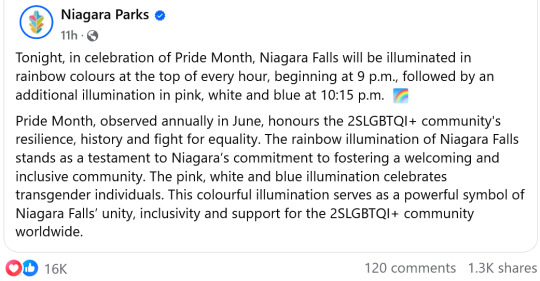


I thought y'all might like to see Niagara Falls lit up for Pride.
Hope you had a good one!
52K notes
·
View notes
Text
I think part of it is that a lot of women have felt left out of action oriented genres when they were kids and so they want to write more action oriented women and a lot of men... let's be honest, they don't know how to write women so they either have them doing the things the guys are doing or they end up sidelined. Look at how many big fantasy franchises have twice as many men in them as women. That feeds back into your point about how women's work ends up being undervalued - maybe not on purpose but undeniably.
I think the best answer is to have a large and varied cast of women with different roles and skills. I tend to find female writers are better about that but there are some stories by men who pull it off. I'm very partial to Tamora Pierce's work, which DOES focus on Action Ladies but there's also really cool women who aren't action types and some like Thayet who have the skills of both.
The second post is so true too! There's so many ways to use the soft power and skills classical ladies had to make interesting resolutions and storylines! Yeah, sure, maybe the man knows how to swing a sword but his lady wife's been in charge of the finances for ages and she's been the one dealing with the business contacts. If he fucks with her she'll guarantee he's broke within a week. Or maybe she's been the one bringing the tenants soup when they're sick and checking on their problems so now they're all very protective of her and they outnumber the soldiers five to one.
So for those of you who would like to know more about what upper class women did, here's a list of skills
1) Have and be responsible for children
2) Oversee the staff (for your household if not the whole house)
3) Ensure wine, ale, mead, beer, etc. are brewing correctly and on time
4) Ensure supplies are put aside for famine, siege and/or winter and being maintained and cycled through so it doesn't spoil
5) Negotiate with traders to sell and buy products
6) Keep accounts for household and the overall house's holdings
7) Ensure everyone is clothed - old nobles clothes get given to servants, old servants clothes get repurposed until it's useless and eventually composted
8) Mediate disputes between vassals
9) When husband is away, overseeing the military forces (make them fed, equipped and trained and behaving)
10) If the castle is attacked and husband is away, the decisions on tactics and orders stop with her (even if commanders are still around, they need to answer for her). If it gets bad, there's a non zero chance they'll be given a bow, a small knife/dagger and armour and have to join the defence
11) Politicking - hosting parties and events, hosting visits, paying visits, picking gifts for occasions, and having a lot of influence over fosterings and marriages
12) Teaching the girls to do this stuff
13) Oversee, monitor, and evaluate people she delegates to, meeting with heads of different departments and random spot-checks
14) Needlework - both making clothes and all sorts of other needlework and decorations - in her spare time.
15) "Keep home happy" with painting, dancing, singing, poetry, music, or going on hunts.
16) Discussing matters of province with counsellors or Lord (or whoever husband is)
17) When the husband is gone, making judicial decisions, supervise rent and tax collection, address problems and hire/fire staff
I don't know exactly how to articulate this but... if you repeatedly show historical fiction women rejecting traditionally female skills/duties and doing swords instead, because swords is obviously the Most Important Thing, you are kind of implying that all the work that has been traditionally done by female hands for millennia was useless all along and not, you know, keeping civilization going. Because it's usually rejected not as a personal preference but as This Is The Important Stuff (male work) and That is The Dumb Useless Stuff (women's work) and that kind of bothers me. The message was supposed to be Vital But Underpaid and Underappreciated, not women's work is insignificant so let's all go do swords.
12K notes
·
View notes
Text
Love the universe need of all babies human and animal to just lay on adults
156K notes
·
View notes
Note
I have never been to a funeral. My family are not 'funeral' people.
have you ever attended a non-christian funeral?
by non-christian, i mean like, there’s not a preacher speaking/bible reading/hymns sung, etc. i’m just curious cause i’m sure they happen, i’ve just never been to one i guess?
249 notes
·
View notes
Note
hey .
my rabbit died yesterday from shock.
we got her a new cage and she hated it
anyway how are you ?
Oh no! I'm sorry to hear about your rabbit. May she rest in peace. I know it's hard to lose a pet and I'm thinking of you.
I know you have questions for me but I'm waiting to answer them because there's something I need to say first and I need to find time to sit down and figure out how to word it. I also have a new job so that's not helping time matters.
2 notes
·
View notes
Text

the color signatures of various elements when ignited
FB image credit: Ceres Science
26K notes
·
View notes
Text
This scientist crafts stunning visual art through chemistry.
38K notes
·
View notes
Text
Not even American and I SLAMMED that reblog button.
Central heating in winter and air conditioning in summer are undisputed goods.
not to be an american but like. air conditioning is the greatest invention of all time.
39K notes
·
View notes

